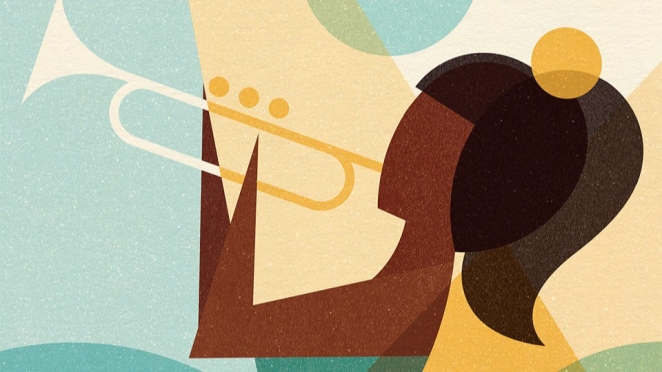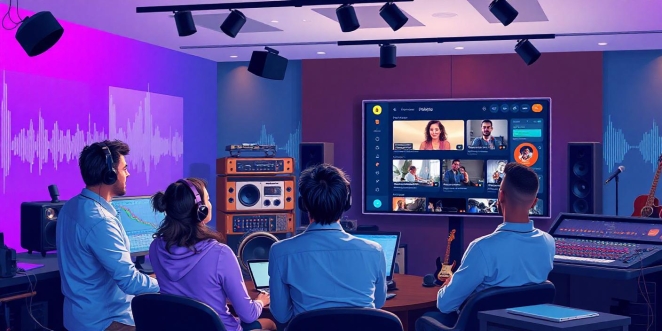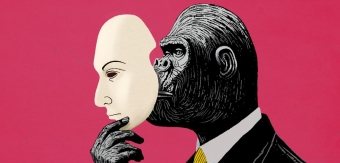Hiring a sound designer is a crucial step in the creative process for any project that requires audio, whether it’s a film, video game, podcast, or advertisement. Sound design plays a vital role in shaping the audience's experience, making it essential to find the right professional for the job. This guide will walk you through the process of hiring a sound designer, from understanding their role to making the final selection.

Image Credit - Zara Picken
Understanding the Role of a Sound Designer
Before you start the hiring process, it's important to have a clear understanding of what does a sound designer do. Sound designers are responsible for creating the audio elements of a project. This includes everything from sound effects and background noises to the overall audio atmosphere. They work closely with other members of the production team, such as directors, producers, and editors, to ensure that the sound complements the visual elements and enhances the overall experience.
Key Responsibilities of a Sound Designer
Creating and Designing Soundscapes:
The primary responsibility of a sound designer is to create and design the soundscapes that will define the auditory experience of a project. This involves conceptualizing and crafting various sound elements that align with the project's creative vision. Whether it’s the ambient sounds in a film, the interactive audio cues in a video game, or the detailed sound effects in an advertisement, the sound designer must blend creativity with technical skill to produce soundscapes that enhance the narrative and emotional impact.
Recording and Editing Sound Effects:
Sound designers are responsible for the recording and editing of sound effects, a task that requires both creativity and technical expertise. They may record original sounds in various environments or manipulate pre-recorded sounds to fit the specific needs of a project. For example, the sound of footsteps on gravel might be recorded in a controlled environment and then edited to match the exact timing and intensity needed for a particular scene.
Mixing and Mastering Audio:
One of the more technical responsibilities of a sound designer is the mixing and mastering of audio. Mixing involves balancing and adjusting various audio elements—such as dialogue, sound effects, and music—to create a cohesive soundscape that complements the visual elements. This process requires a deep understanding of acoustics, audio frequencies, and the use of specialized mixing software. Mastering, on the other hand, is the final step where the overall sound is polished and prepared for the intended medium, whether it’s for cinema, online streaming, or other platforms.
Staying Updated with Industry Trends and Technology:
Finally, sound designers have the responsibility to stay updated with the latest industry trends and advancements in sound design technology. The field of sound design is constantly evolving, with new tools, techniques, and software being developed regularly. To remain competitive and produce cutting-edge work, a sound designer must continuously educate themselves on these developments. This could involve attending workshops, participating in industry conferences, experimenting with new software, or collaborating with other professionals to exchange knowledge.

What to Look for While Hiring a Sound Designer?
When hiring a sound designer, it’s essential to look beyond just technical skills and experience. A truly exceptional sound designer brings a unique blend of creativity, collaboration, and innovation to a project. Here are some specific qualities and attributes to consider:
Versatility Across Different Genres and Styles
Versatility is a key quality to look for in a sound designer. The best sound designers can adapt their style to fit the specific needs of different genres, from the eerie and atmospheric sounds required in a thriller to the lively and dynamic audio of an action-packed video game. This versatility indicates a deep understanding of how sound can be used to evoke different emotions and atmospheres.
Innovative Use of Technology
Sound design is a field that thrives on innovation, and the best sound designers are those who are not only familiar with the latest tools and technologies but also know how to use them in creative ways. This could involve utilizing advanced sound synthesis techniques, experimenting with spatial audio for immersive experiences, or incorporating real-time audio manipulation in interactive media. Look for designers who are excited about pushing the boundaries of what’s possible with sound.
Experience with Spatial and 3D Audio
With the rise of virtual reality (VR), augmented reality (AR), and immersive gaming, experience with spatial and 3D audio is becoming increasingly valuable. If your project involves creating an immersive environment where sound needs to be accurately positioned in a three-dimensional space, it’s crucial to hire a sound designer who has experience in this area.
Ability to Work Within Budget Constraints
Creativity often thrives under constraints, and the best sound designers know how to deliver high-quality results even within tight budgets. This might involve finding innovative ways to create sound effects without access to expensive equipment or maximizing the use of existing sound libraries. When discussing a project’s budget, look for candidates who can offer practical solutions and demonstrate a track record of delivering excellent results within similar constraints.

Image Credit - Neil Williams
Should I Hire a Freelance or an In-house Sound Designer?
Deciding whether to hire a freelance or an in-house sound designer depends on various factors, including the nature of your project, budget, long-term needs, and the type of collaboration you’re seeking. Both options have their advantages and disadvantages, so it's important to weigh them against your specific requirements. Here's a breakdown to help you decide:
When to Hire a Freelance Sound Designer
Project-Based Needs:
If your sound design needs are tied to a specific project with a clear start and end date, hiring a freelance sound designer might be the most cost-effective solution. Freelancers are typically hired on a per-project basis, which allows you to scale your team up or down depending on the workload. This is ideal for one-off projects like a film, video game, or marketing campaign where you need specialized sound design services for a limited period.
Budget Constraints:
Freelancers often provide more flexibility in terms of budget. You can negotiate rates based on the scope of work, and you’re not responsible for the additional costs associated with full-time employees, such as benefits, taxes, and equipment. If your budget is tight, a freelance sound designer can be a more affordable option, especially if you only need their services intermittently.
Access to Specialized Skills:
Freelance sound designers often bring a diverse range of experiences and specialized skills to the table. Because they work on various projects, they may have expertise in niche areas such as spatial audio, Foley art, or specific genres of sound design. If your project requires a unique skill set or a fresh perspective, a freelancer with specialized experience might be the perfect fit.
Flexibility and Speed:
Hiring a freelance sound designer can offer greater flexibility in terms of timelines and deliverables. Freelancers can often start quickly and may be more adaptable to changes in project scope or deadlines. This can be particularly advantageous in fast-paced industries where quick turnarounds are essential.
Short-Term Commitment:
If you’re not sure about the long-term demand for sound design within your organization, hiring a freelancer allows you to meet immediate needs without committing to a long-term employment contract. This short-term engagement gives you the flexibility to reassess your needs after the project is completed.
When to Hire an In-House Sound Designer
Ongoing or Continuous Needs:
If your organization consistently requires sound design work—such as a game development studio, film production company, or advertising agency—hiring an in-house sound designer may be more efficient. An in-house designer becomes an integral part of your team, providing continuous support and maintaining a deep understanding of your brand’s sound identity. This ongoing relationship ensures consistency across multiple projects.
Deep Collaboration and Integration:
In-house sound designers have the advantage of being fully integrated into your creative team. They can participate in brainstorming sessions, attend meetings, and develop a comprehensive understanding of your company’s vision and culture. This deep collaboration often results in a more cohesive and aligned sound design that perfectly matches your brand’s goals.
Brand Consistency:
For companies that have a strong, recognizable brand, an in-house sound designer can help maintain consistency across all audio elements. By being embedded within the company, an in-house designer can ensure that the sound design remains aligned with the brand’s identity over time, creating a unified auditory experience across various projects and platforms.
Immediate Availability:
Having an in-house sound designer means they are readily available to address any sound-related needs as they arise. This is particularly useful in fast-moving environments where quick adjustments or last-minute changes are common. An in-house designer can respond more quickly to these demands without the delays that might occur when coordinating with a freelancer.
Investment in Long-Term Growth:
Hiring an in-house sound designer is an investment in the long-term growth of your company’s creative capabilities. Over time, an in-house designer will gain a deeper understanding of your projects and processes, leading to more efficient workflows and innovative solutions tailored specifically to your needs. Additionally, as a full-time employee, they can take on broader responsibilities, such as managing a sound design team or developing new audio strategies for your company.
Weighing the Decision
When deciding between a freelance or an in-house sound designer, consider the following key questions:
- What is the frequency of your sound design needs? If you have regular, ongoing projects, an in-house designer might be more cost-effective in the long run. For occasional or project-based needs, a freelancer could be the better choice.
- What is your budget? Freelancers typically offer more flexibility in terms of cost, but in-house designers provide long-term value, especially if you require ongoing sound design work.
- How important is deep collaboration? If close collaboration and integration with your team are crucial, an in-house designer will be able to contribute more effectively. Freelancers, while talented, may not be as immersed in your brand’s culture and goals.
- Do you require specialized skills? Freelancers often bring a wealth of experience from different industries, which can be beneficial for unique or specialized projects. In-house designers, on the other hand, offer continuity and a deep understanding of your brand.

Image Credit- Miles Savelli-Holt
Using Creativepool
Looking to hire a Sound Designer? Creativepool has thousands of talented members waiting to make your project shine.
There are 3 ways for you to find a Sound Designer on Creativepool.
Search and Contact
Are you looking for more control over your collaborations and the selection process? Taking a proactive approach to talent scouting involves directly searching for talent and handpicking individuals you’d like to work with.
Here’s how it works: Simply search for a Sound Designer and explore the results. You’ll have the opportunity to review their projects, CVs, and resumes, allowing you to make an informed decision for your next hire.
At Creativepool, we utilize a set of indicators to rank our members based on their job titles. By exploring the top 25 ranked Sound Designers, you can efficiently discover the most talented individuals on our platform. However, don’t overlook the potential of finding untapped talent among our thousands of other skilled members.
Once you identify a professional whose style and experience align with your requirements, reach out to them directly by clicking on the message tab. If you have a specific vision for the type of creative professional you’d like to collaborate with, utilizing our search feature is the ideal approach.
Once you’ve discovered a professional whose style and experience resonate with your needs, reach out to them directly by clicking on the message tab. If you have a precise vision of the type of creative professional you’d like to collaborate with, searching is the ideal approach.
Post a studiogig
Looking for a part-time Sound Designer? The quickest way to find available talent is to advertise your brief. With us, briefs for individuals are called studiogigs.
Posting your role is a simple process. Once you submit it, we kick into action behind the scenes to find the perfect talent for your requirements. After advertising your brief, all you need to do is sit back and wait for direct applications from interested candidates
Post a job
If you are looking for a permanent Sound Designer, then advertising Sound Designer jobs are the best way to attract talent. The process is identical to posting a studiogig.
Once you post your role, we’ll carefully review the advertisement details. We’ll then send job alerts to our community members who closely match your criteria, and your role will be prominently featured on our jobs board. Interested StudioGigs applicants will apply directly to you.
Whether you’re posting a job or a StudioGig, or if you’re searching for talent, rest assured that you retain full control over whom you choose to hire. There’s no obligation to select any of the applicants, and you can negotiate rates directly with them.
If you need any help on your talent hunt. You can chat with us or send us a message. We'd be happy to help.
Conclusion
Hiring a sound designer is a critical step in ensuring the success of your project. By understanding your needs, carefully reviewing candidates, and making an informed decision, you can find a sound designer who will bring your vision to life. Sound design is a powerful tool that can elevate your project, and with the right professional on board, you’ll be able to create an immersive and impactful experience for your audience.







